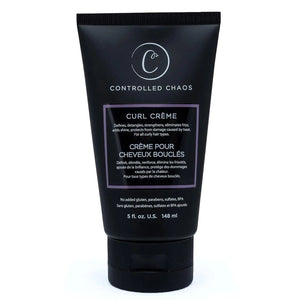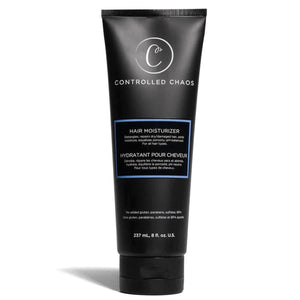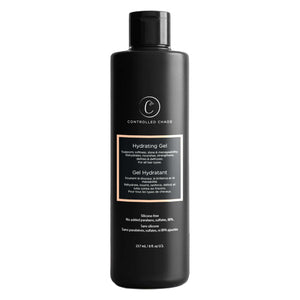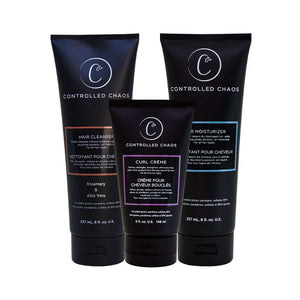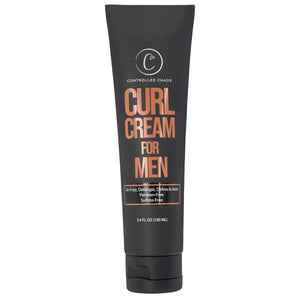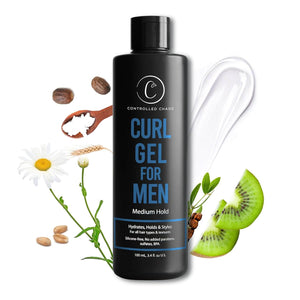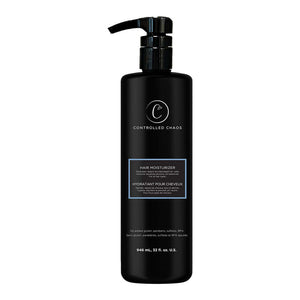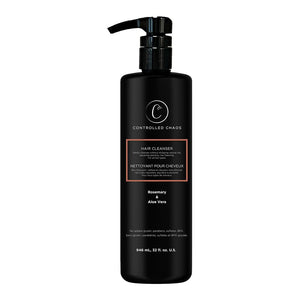

Saltwater has long been associated with beachy waves and tousled locks. But does it have the magical ability to curl your hair? Many people want to know the answer does salt water curl your hair? In this blog, we'll discuss the science behind saltwater and its effects on hair. Moreover, we are going to exploring whether it genuinely has the power to create those coveted beachy curls.
Understanding Saltwater and Hair:
Firstly, let's define saltwater. As the name suggests, salt water contains dissolved salts, primarily sodium chloride (table salt) and other minerals. When we talk about saltwater and hair, we typically refer to seawater, the salty water found in oceans and seas.
The Effect of Salt on Hair:
Salt has a dehydrating effect on hair. When hair comes into contact with salt water, the salt draws moisture out of the hair shaft, leaving it dry and brittle. This can cause the hair to become rough and tangled, which some people interpret as "curling" since the hair strands are no longer lying flat against each other. Thus, we cannot say that Natural curl enhancement with salt water is achieved.
The Mechanism Behind "Salt Curls":
The curling effect attributed to saltwater is not the result of the water itself curling the hair but rather the combination of salt and water altering the hair's texture. When hair is exposed to saltwater, the cuticle, the outermost layer of the hair strand, swells and lifts. This can lead to a frizzy appearance, especially in hair that is naturally wavy or curly. Additionally, the salt can create a slight hold on the hair, causing it to clump together and form loose waves or curls.
The Role of Hair Type:
It's important to note that the effect of saltwater on hair can vary depending on the individual's hair type. People with naturally straight hair may notice a slight wave or texture enhancement after swimming in saltwater. In contrast, those with already curly or coarse hair may experience more pronounced curls or increased frizz.
Potential Damage:
While saltwater can temporarily enhance the texture of your hair, it's not without drawbacks. The dehydrating effect of salt can lead to dryness and damage, especially with frequent exposure. Over time, this can cause the hair to become brittle and prone to breakage. Additionally, the salt residue left on the hair and scalp after swimming can contribute to buildup and further dryness if not adequately rinsed. Therefore, you should always manage salt water damage to hair.
Further Research and Alternative Methods:
Despite the allure of saltwater for creating beachy curls, alternative methods can achieve similar results without the potential damage. For example, using sea salt sprays or texturizing products designed specifically for hair can mimic the look and feel of saltwater curls without subjecting your hair to the drying effects of actual saltwater.
Heat styling tools such as curling wands or flat irons also offer a controlled way to create curls and waves without exposing your hair to the harsh elements of saltwater. Using these tools and heat-protectant products can achieve the desired hairstyle while minimizing the risk of damage.
Understanding the Limitations:
It's essential to recognize that no single method works for everyone when styling hair. Hair texture, porosity, and existing damage significantly affect how hair responds to different styling techniques. While saltwater may work well for some individuals, others may find it leaves their hair dry and brittle.
Understanding your hair's unique characteristics and needs is the key to achieving the perfect curls. Experimenting with different styling methods and products can help you discover what works best.
Natural Alternatives:
There are several options worth considering for those seeking natural alternatives to achieving beachy curls without resorting to saltwater. One popular method is homemade sea salt sprays, which can be made by mixing sea salt with water and optional ingredients. These DIY sprays can provide texture and hold similar to saltwater without the potential drying effects. Thus, you should go with natural alternatives to overcome saltwater hair damage.
Another natural approach involves braiding or twisting damp hair before allowing it to air dry. This technique, often called "braid waves" or "twist waves," can create soft, natural-looking curls. By varying the size and number of braids or twists, you can customize the look to suit your preferences.
Furthermore, embracing your hair's natural texture and working with it rather than against it can yield beautiful results. Emollient-rich products like leave-in conditioners and curl creams can help enhance curls and waves while providing hydration and definition.
Protecting Your Hair in the Sun:
In addition to the potential effects of saltwater, exposure to the sun's UV rays can also damage the hair, leading to dryness, fading, and breakage. Consider shielding from direct sunlight to protect your hair while enjoying outdoor activities. You can also use UV-protectant hair products or apply a leave-in conditioner with SPF to provide an extra layer of defense.
Maintaining Overall Hair Health:
Regardless of your styling methods, maintaining overall hair health is crucial for achieving and maintaining beautiful curls. This includes regular trimming to remove split ends. You should add these products to your hair routine.
Final Thoughts:
In short, the above blog has answered whether salt water curl your hair. While saltwater can create texture and waves in the hair, its effects may vary depending on hair type and condition. Natural styling methods and products offer gentler options for those seeking alternatives that can achieve similar results without the potential damage. Understanding your hair's unique needs and preferences is the key to achieving and maintaining beautiful curls. You can embrace your natural texture by experimenting with different techniques and products and prioritizing overall hair health.
FAQs
Does salt and water curl your hair?
Saltwater can create texture and waves in the hair by dehydrating the strands, leading to a slightly curled appearance.
Does salt water curl your hair?
Saltwater can cause the hair cuticle to swell, resulting in temporary waves or curls, particularly those with naturally wavy or curly hair.
How does salt water affect different hair types?
Saltwater affects different hair types differently. While some may enjoy enhancing curls or waves, it can also lead to dryness and damage. Therefore, it is difficult to determine the pros and cons of using salt water on hair.
Does salt water curl hair?
Saltwater doesn't curl hair traditionally but can create a beachy, textured look due to its dehydrating effect on the hair strands.
Is saltwater safe for all hair types?
Saltwater may not be suitable for all hair types, as it can exacerbate dryness and damage, particularly in hair already prone to dryness or breakage.
How does salt water affect different hair types?
Saltwater can enhance curls or waves in those with naturally textured hair. Still, it may cause dryness and damage in finer or straighter hair types, depending on individual sensitivity and care routines.

